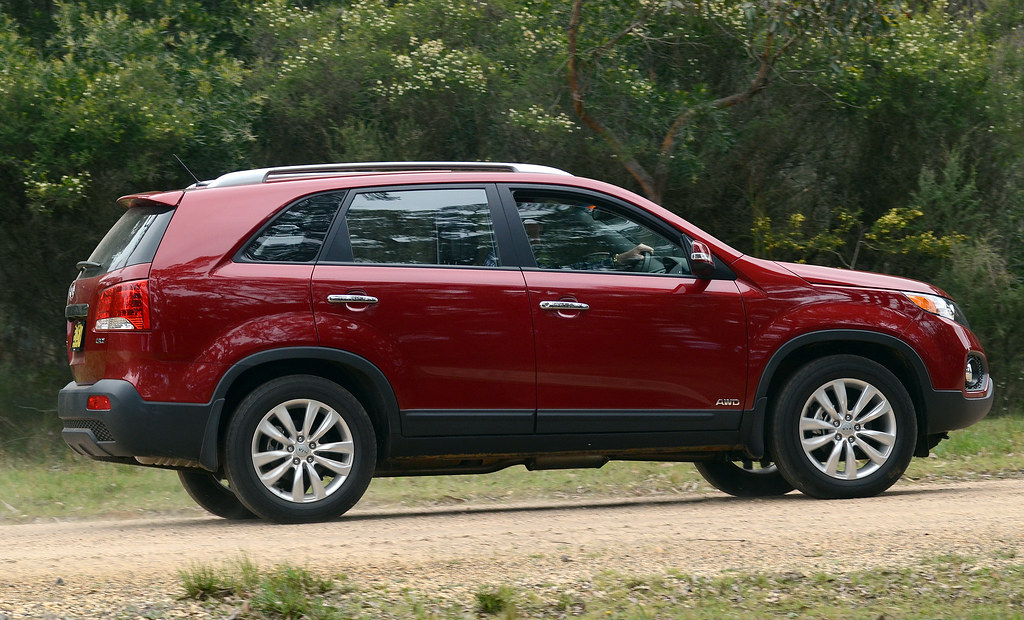
The electric vehicle (EV) market has generated excitement for years, yet a surprising number of American consumers continue to shy away from EVs, choosing traditional vehicles instead. In fact, more than 90% of buyers still prefer gasoline-powered cars when it’s time to make a new purchase, leaving industry experts and consumers alike puzzled, especially in light of the significant political and financial efforts to promote electric vehicles. A comprehensive market analysis published by Kelley Blue Book in March 2024 reveals a stagnation in EV sales, which have plateaued at around 8% of total new vehicle purchases, dipping to 6.5% as of February. So, what’s fueling this widespread reluctance?

1. **Automakers Don’t Cater to the Largest Vehicle Segment**: The largest vehicle segment in America is compact crossovers, yet the market has yet to see any battery-electric vehicles (BEVs) or all-wheel-drive options that meet the specifications of the average American buyer. There’s a notable absence of affordable options in this category, leaving potential buyers feeling overlooked. If the push for EVs is genuine, one would expect automakers to address the most popular vehicle type rather than focusing solely on niche models.

For many, hybrid-electric vehicles (HEVs) represent a satisfying middle ground that balances eco-friendliness with practicality. Many hybrids achieve 30-50% fewer emissions compared to traditional vehicles while also delivering remarkable range and performance. With these appealing benefits and their established reliability, it’s no wonder that a significant number of consumers prefer to stick with hybrids rather than transition to fully electric vehicles.

One of the most pressing concerns for potential buyers of battery electric vehicles (BEVs) is how these cars perform in frigid temperatures. Extreme cold can dramatically reduce an EV’s estimated range by up to 40%, which poses a significant problem for those who frequently travel long distances. A vehicle that boasts a 300-mile range in ideal conditions might drop to under 180 miles in winter weather, making this a dealbreaker for many cautious shoppers.

4. **Reliability Issues**: Many prospective buyers have reservations about the reliability of BEVs. Despite promises that electric vehicles will become more dependable, studies over the past 27 years have shown that they do not consistently outperform their gas-powered counterparts. In the latest J.D. Power Dependability Study, it was reported that BEVs experience more problems than both gas-powered and hybrid vehicles, raising flags for those who prioritize reliability in their purchasing decisions.

While it’s widely believed that electric vehicles come with lower maintenance costs, this isn’t always the case according to recent reports. Evidence suggests that higher tire replacement costs for EVs can negate any perceived savings from reduced maintenance needs. Furthermore, traditional maintenance packages offered by most brands contribute to the challenge of realizing the supposed long-term financial advantages of owning an electric vehicle.

Although one of the main attractions of owning a BEV is the promise of lower energy costs per mile, this benefit can diminish in certain areas where electricity prices are high. In locations like Metro Boston, where electricity rates exceed gasoline prices, the financial benefits of electric vehicles start to fade, prompting potential buyers to rethink their choices.

Concerns about the potential costs of replacing EV batteries loom large for many consumers. Reports indicating high replacement prices from manufacturers such as Hyundai and Tesla exacerbate these worries, leading buyers to question the long-term affordability associated with electric vehicle ownership.

8. **Inadequate Public Charging Infrastructure**: The accessibility of charging stations is another significant hurdle. While EV advocates frequently highlight the need for improved public charging infrastructure, potential buyers who lack the capacity to charge at home view this as a major limitation. Without a robust network of charging stations, many consumers find the transition to an electric vehicle too daunting.

9. **Expensive Public Charging**: For those unable to charge at home, public DC fast charging can be prohibitively expensive, often costing significantly more per mile than fueling a hybrid vehicle. This added expense reinforces the idea that hybrids may be the more sensible choice for many drivers.
10. **Confusing EV Incentives**: The federal tax incentives for electric vehicles have become a complex web of rules that often confuse potential buyers. The current incentives are not only difficult to navigate, but they also exclude many high-earning Americans who might otherwise be inclined to purchase a BEV, further complicating the purchasing process.
11. **Missing Features in Popular Models**: Many electric vehicles are missing common features that consumers expect in top-selling models, like spare tires and popular infotainment options. While some automakers are cutting these features to save weight, such omissions can leave consumers feeling shortchanged when considering the higher price tags associated with EVs.

A significant factor in consumer reluctance to embrace electric vehicles is the pushback against perceived mandates, particularly in states like California. Many buyers instinctively resist external pressures dictating what they should drive, valuing personal freedom of choice over compliance with regulations.

While the reasons behind the hesitance to adopt electric vehicles are nuanced and varied, one fact stands out: despite the growing inventory of new BEVs, 93% of shoppers still opt for traditional vehicles. Preferences are clearly shaping the landscape of EV sales, and until manufacturers adapt to meet consumer demands more effectively, EVs may continue to face an uphill battle for mass market acceptance.

Inflation has become a notable barrier for consumers pondering the purchase of an electric vehicle, as rising costs in various sectors have made many hesitant to invest in what often turns out to be pricier EVs. With expenses on the rise across the board, budget-conscious individuals are prioritizing affordability, leading many to stick with traditional gas-powered vehicles that better align with their financial situation.
Increased interest rates have made financing a new vehicle, including electric cars, more expensive than ever before. Many consumers are apprehensive about taking on larger loans in a volatile economic climate, and the combination of high sticker prices and soaring borrowing costs can steer potential buyers back towards more familiar combustion engine vehicles.

15. **Political Climate and Consumer Sentiment**: The political landscape surrounding electric vehicles can be a double-edged sword. While some states actively promote EV adoption, others have introduced unfavorable regulations or taxes that create a negative perception of electric vehicles. This inconsistency leads to confusion and reluctance among consumers who may feel the push for EVs is more about mandates than genuine choice.

16. **Environmental Concerns Beyond Emissions**: While many consumers recognize the emissions benefits of electric vehicles, they often harbor concerns about the environmental impact of battery production and disposal. Issues related to lithium mining and the carbon footprint of manufacturing processes can deter environmentally-conscious buyers who feel that the environmental harm may outweigh the benefits of driving an electric vehicle.
novation, thus opting for conventional combustion engines.

The exploration of consumer hesitance highlights that the reluctance to adopt electric vehicles is rooted in a complex web of issues. As advancements continue in the automotive technology sector, it is crucial to address these concerns in order to encourage a smoother transition for skeptical consumers into the electrified future of driving. Collaborative initiatives among manufacturers and policymakers will be vital in finding solutions that enhance the attractiveness of the EV market. By systematically addressing these barriers, there is hope for a growing acceptance and enthusiasm for electric vehicles among the general public.
Related posts:
12 Reasons Why 93% of American Shoppers Are Choosing NOT to Get an EV in 2024
Why some drivers are still hesitant to go electric








